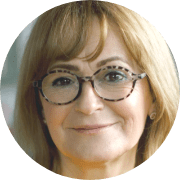Loved by parents & children
98% of our parents saytheir children made significant progress

Priscilla
Published: Aug 16, 2025
Very big improvement given a short period of time with only a small time period of about 3 months my daughter in year 10 has gone from a level U to a level 4 in her maths grade with her tutor Jose. He is a very good maths teacher and has very easy ways of doing hard GCSE maths. What my daughter used to find immensely hard is now very easy. Jose is sadly not her tutor anymore but this was a very great experience and will be looking forward to using this company again for my daughter to get high grades and pass her GCSE’s thank you very much.


Kerry C.
Published: Aug 9, 2025
Excellent service, highly recommented Booked a block of Lessons leading up to my sons maths exam as maths was his weakest subject and he felt he wanted help. Pia (the tutor) was patient and professional and explained things in a way my son could easily understand. He looked forward to each lesson and felt the lessons gave him the confidence, knowledge and understanding he needed to face his maths GCSE exam. He thinks he did really well in his first exam and we are so pleased we invested in the lessons leading up to his GCSE’s. Can’t recommend Edumentors and Pia enough. Really professional service and well worth the money.


Adesuwa G.
Published: Aug 18, 2025
The tutoring times were really flexible and the tutor themselves (Izzy Mitchell) was amazing. The level of communication allowed between the student and tutor made it easy for my questions to be answered quickly. So thank you so much Edumentors and Izzy! Personally, I went from a 6 to a 9 in AQA English literature in just a few weeks so if you are thinking about it, give it a go!


R Harris
Published: Aug 25, 2025
Absolutely superb. Helped my son move from a predicted D in Maths to an actual A, in year. Highly recommend both Edumentors and specifically Apoorv as a tutor. It was easy to set-up, pay and manage. Any issues were solved quickly and without fuss.


Raoul
Published: Aug 14, 2025
Fantastic Flexible German Tutoring We had Imogen from Edumentor tutoring my daughter for GCSE’s. Imogen is a fantastic tutor and through the year prepared my daughter enabling her to get a 9 in German. Edumentor were extremely flexible and helpful in ensuring we could have the sessions when we needed them the most. I would throughly recommend using them for your GCSE tutoring.


Lou C.
Published: July 6, 2025
Joe is a brilliant maths tutor who has really taken time to understand our son and where he most needs help. The school have notice a massive improvement with predicted grades increasing by two levels which had slipped massively due to Covid and lack of consistent teaching at school. Can’t recommend Joe enough, this is a brilliant service and I’m thrilled to be supporting this great company who are enabling students to earn while they study.


Jyotsna R.
Published: Aug 20, 2025
My son was struggling to grasp just the basics of Mandarin, this was one subject he did not want to talk about less than a year ago. Since his lessons with Meiyang via Edumentors have started, not only is he interested in getting better marks, but looks forward to the next Edumentors session! He is now acing every single test/exam, and occasionally I have overheard him speak ever so proudly of his Mandarin skills! I'm grateful, thank you, Edumentors.


Tina S.
Published: Aug 29, 2025
I saw a significant change in my daughter's attitude towards learning since working with a student-tutor. He helped to rekindle my daughter's motivation, leading to improved academic performance and engagement in the classroom. Studying with a role model turned out to be very effective! Thank you!


Cory R.
Published: June 15, 2025
The tutor we used (Joely) was amazing and helped my daughter in Maths more than any other teacher or tutor! Highly recommended!!!


Anika M.
Published: June 4, 2025
Edumentors is an excellent platform to facilitate your child's education. The tutors are cherry-picked through a rigorous application process that entails multiple stages to provide the best possible tutors for your children. Prices vary according to the tutor and their experience tutoring that particular subject. Subjects vary from Key Stage 1 up to A-Levels, so a wide breadth of tutors is available. I have no complaints :)















